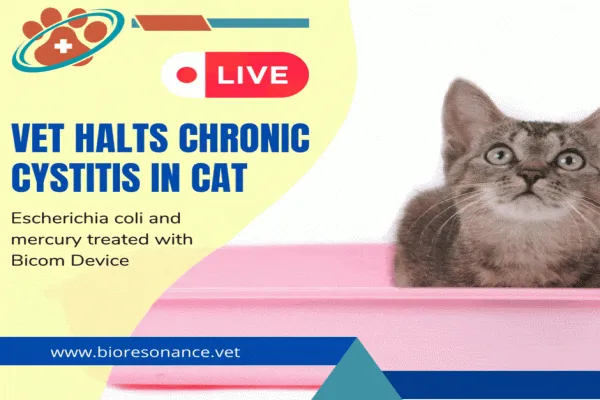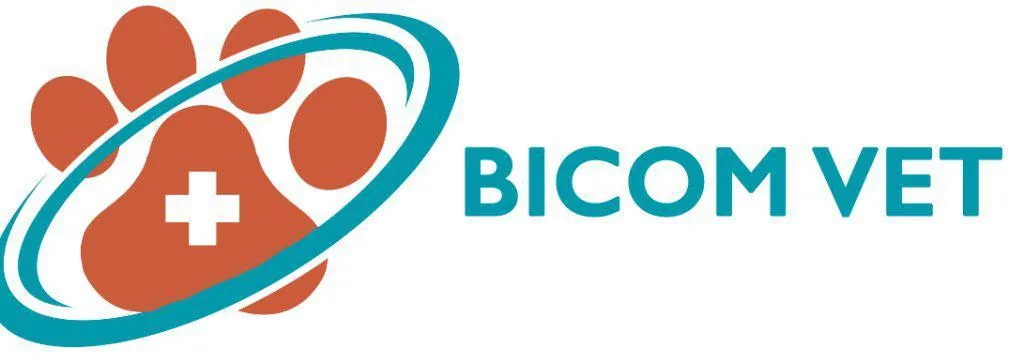
Chronic cystitis
Custom HTML/CSS/JAVASCRIPT
Client Name: Dr. med. vet. Schollaert, Belgium
Miou purrs once more
I have been a BICOM® therapist since 1983 and about two-thirds of the patients in my veterinary practice are horses and one-third are small animals, mainly cats and dogs.
I am going to report on a cat with chronic cystitis as a typical example of around 30 or 40 similar cases.
Miou, a sterilized female house cat, was brought to my practice by her owner. The animal had already been suffering considerable pain on urinating for over six weeks. She tried to pass water six or seven times a day and had to squeeze hard in doing so, yet only produced a few drops.
The owner had already gone to two other practices. These had carried out several urine tests and detected Escherichia coli. Both practices gave Miou antibiotics. These would get rid of the symptoms but, as soon as she stopped taking them, the symptoms soon returned.
Using the BICOM®, mercury tested positive as the main contributory factor, probably from thiomersal, an active ingredient in vaccines, and I also detected parasitic infection with Schistosoma.
After basic BICOM® therapy to restore the energy balance, I stabilized the kidneys with a special program. This was followed by the “toxin elimination“ program. Then the mercury and parasitic infestation were eradicated with the appropriate programs. The cat was already visibly relaxed after the first treatment session.
The second session took place after six days. During this treatment, the cat lay totally relaxed on the modulation mat while the therapy oscillations were applied to her.
Three days later the owner called to report that the cat was much better and was no longer displaying any symptoms. We made a third appointment for treatment, after which Miou was lively and restored to full health. It is now three years since this treatment and the cat has not experienced a relapse.
Search Testimonials
It is important to remember that individual anecdotes and testimonials should not be used as the sole basis for making decisions about medical treatments or therapies.
When it comes to alternative therapies like bioresonance, it is essential to rely on evidence-based research and the advice of trained medical professionals. While some people may have positive experiences with bioresonance for their animals, it is important to approach these claims with caution and seek out reliable information from reputable sources.
Ultimately, the decision to pursue bioresonance or any other alternative therapy for your animal should be made in consultation with a veterinarian or animal health professional who can help you weigh the potential benefits and risks.
Pollen – a nuisance for our animal companions too
Hay fever patients are only too familiar with the problem. Year after year the misery begins in the spring with stinging eyes, runny itchy nose and, in severe cases, with a cough and asthma as well. What is perhaps less well known is that our animals too suffer increasingly from this same medical condition.
Just as with humans, the incidence of allergies is also becoming more frequent in animals. Allergic reactions may be provoked by airborne allergens such as pollen, house dust and house dust mites, amongst other factors. Food intolerance is also on the increase, however, and represents a distressing problem for the affected animals.
Now, in spring, as it gets warmer, allergic animals are all suffering as well. With animals it is mainly their skin which itches or else their
noses run more and they occasionally sneeze. Changes in their coats and reddening of the skin are often noticed in the face, feet and ears. These areas often display bloody claw marks and develop into very painful weeping eczema, indicating the severity of the irritation.
This type of problem in animals can be treated with the allergy programs pre-loaded in the Bicom device.
Dr. med. vet. C. May

Facebook
Instagram
Mail